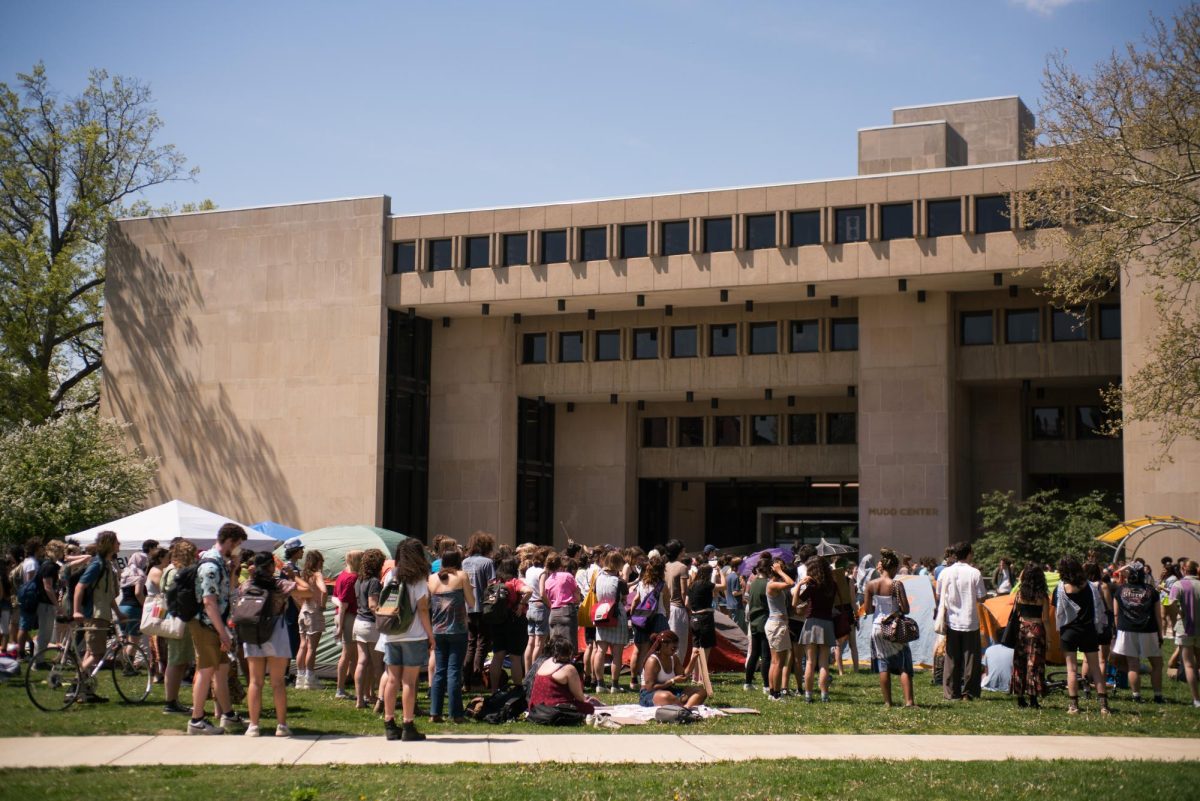With Elon Musk on track to become the world’s first trillionaire by 2027 according to Bloomberg’s Billionaire Index, he is the ultimate example of the “American Dream.” Born in South Africa, Musk immigrated to Canada through familial citizenship when he was 17 and attended Queen’s University at Kingston, later transferring to The University of Pennsylvania in the United States for his bachelor’s degree in Physics and Economics. With Kimbal Musk — his brother — and Greg Kouri, Musk co-founded his first company, Zip2, an online city guide which was later acquired by Compaq for $307 million. That year, he also founded another company, X.com, an easy-to-use direct bank which merged with another company, Confinity, to become Paypal. It was later acquired by Ebay for $1.5 billion. Musk is also known for his involvement in companies such as Tesla Inc., SpaceX, Open AI, and most recently X, formerly known as Twitter. People sometimes see him as an inspiration to work hard, especially immigrants who came to the U.S. to support their family and get out of generational poverty. His supporters have started to create their own small businesses, “reject handouts,” and advocate for billionaires relates to proposed tax policies.
Elon Musk is now the face of one of the major issues that voters and politicians refer to in every election cycle — taxing the rich. Some people think the rich worked hard to accumulate wealth and that unfairly taxing them gets rid of the incentive to work hard, create businesses, or climb the corporate ladder. This is the particular view of Musk, the billionaire — soon to be trillionaire — who wrote on X, formerly known as Twitter, that taxing the rich would hurt the middle class the most.
“Eventually, they run out of other people’s money and then they come for you,” Musk posted.
Like-minded individuals argue the same points, although most make significantly less money than the proposed income for the “billionaire tax.”
Unfortunately, this mindset is flawed, as billionaires often stay rich on the backs of the working class, such as factory and delivery workers, making minimum wage. The working class’ income, lack of bonuses or holiday, and hard work grows the company profits substantially, making the owners richer everyday. Companies such as Amazon and Tesla amass wealth even though both faced class action lawsuits in multiple states. In California, employees faced alleged racial discrimination, lack of pay for overtime, and threats of losing benefits if they unionized.
It has also been highlighted that these companies are alleged to save money by using cheap materials and international labor to fill their demand, with goods being imported from China and the Philippines. There are no verifications that these goods are made sustainably, without child labor, and with safe labor conditions where employees get breaks and are not exposed to harmful chemicals.
In contrast to Elon Musk and his supporters, critics of the “billionaire tax,” state the unfairness of the wealthy keeping most of their income in non-taxable means such as stocks, large shares in big companies, and non taxable loans while working-class Americans get paid in taxable income and pay an average of 15 percent in state and federal income tax. They highlight the struggle of the middle class, who make too much to qualify for income benefits but too little to be able to pay for larger expenses like medical procedures, university tuition, and financing housing out of pocket.
Generational wealth and familial support is also brought up in these discussions because people stuck in generational poverty who live paycheck-to-paycheck unfortunately do not have the benefits of keeping their assets in non-taxable methods or founding new companies to become the next “big thing.” However, they are criticized and shamed for using “handouts” from the government such as Medicare, subsidized housing, and food stamps. This stigma also affects immigrant families because of combined anti-immigrant rhetoric relating to work ethic and anti-poverty rhetoric. This can affect their perception of themselves and even their families, making them ashamed of needing these resources which in turn makes them more likely to accept lower-paid positions within companies. Without the fight for safe working conditions, paid overtime, and benefits, it would unfairly affect marginalized populations like immigrants and low-income families.
With the government taxing billionaires their fair share, programs that currently struggle with funding could be expanded to help those in urban areas or extend the reach of these programs in rural areas that don’t have regular access to food banks or hospitals. In Ohio, where about 26.6 percent of the population is in lower-income households and the poverty rate is slightly higher than the national average, more socially progressive tax policies could create substantial funding for the public school system to give resources to families or give breaks to small business owners. These programs would eventually create a ripple effect to allow more children to attend higher educational institutions, create resources for low income areas, and reduce the substantial wealth gap.







